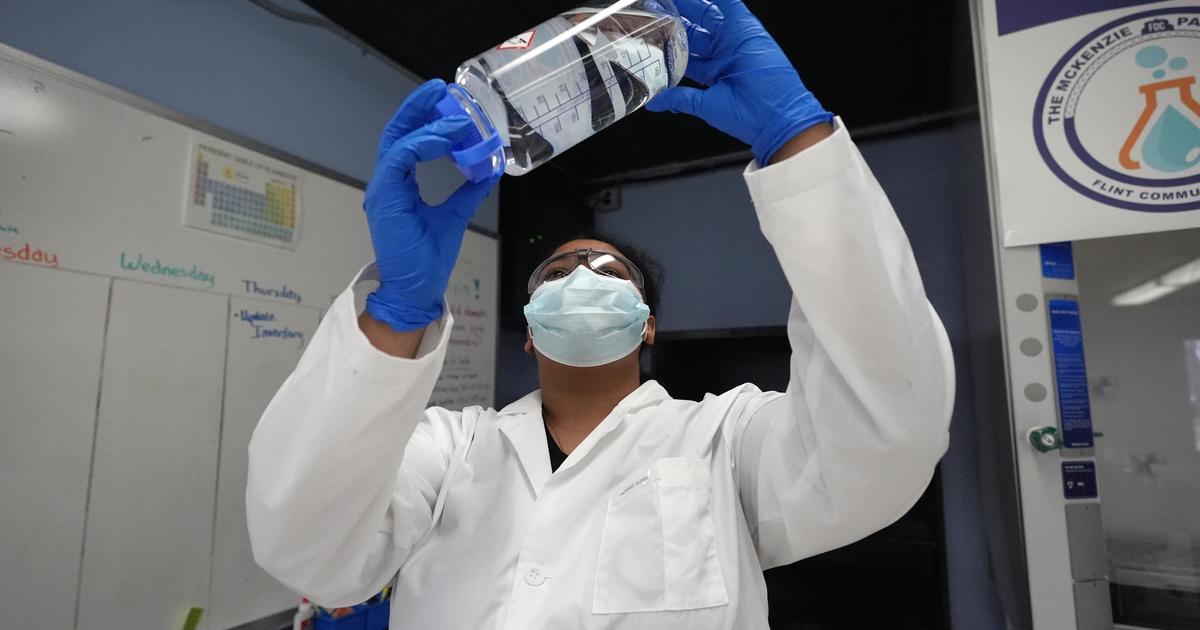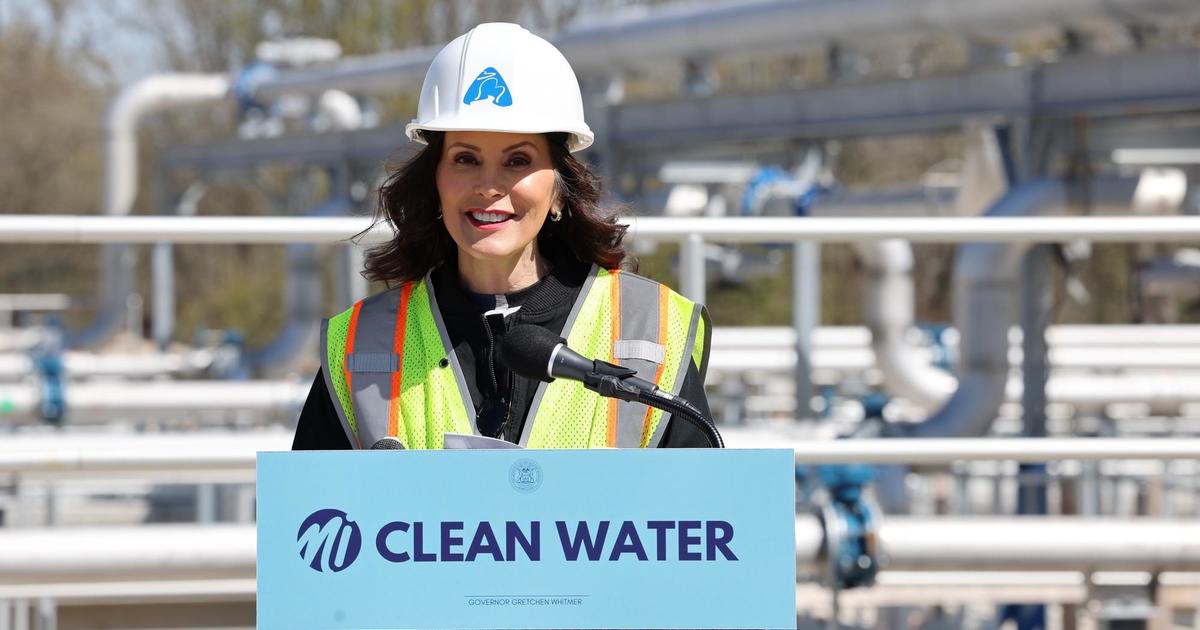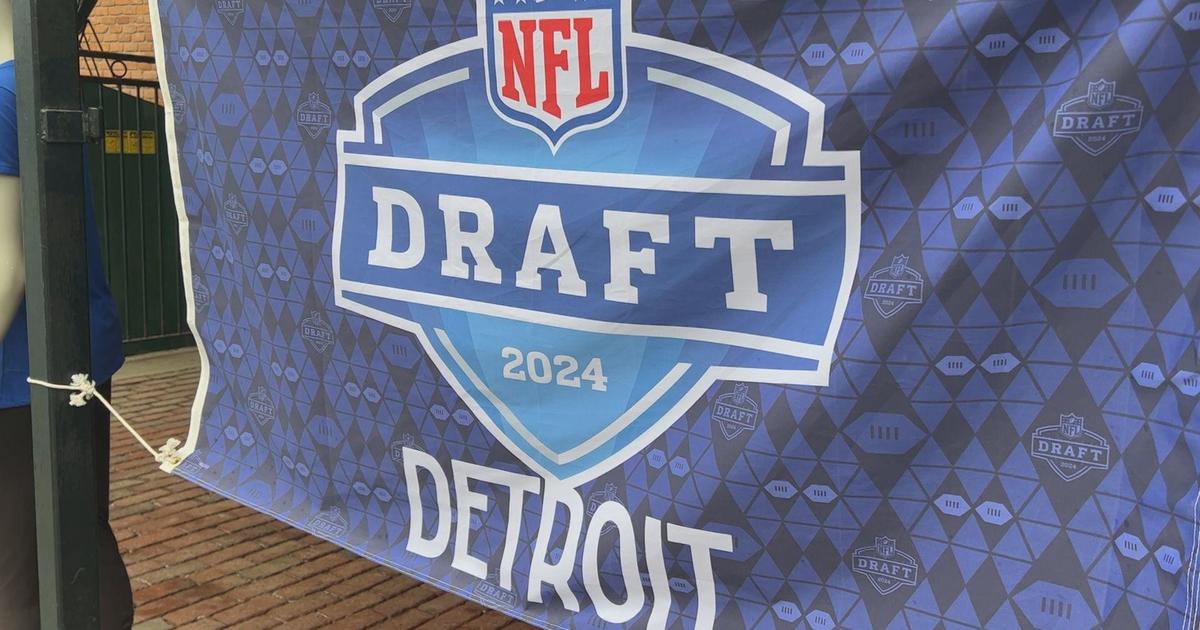"This Is Not Over Yet," Says Toledo Mayor Regarding Water Advisory
TOLEDO, Ohio (WWJ/AP) - More tests are needed to ensure that toxins are out of Toledo's water supply, the mayor said Sunday, instructing the 400,000 people in the region to avoid drinking tap water for a second day.
Mayor D. Michael Collins said although new samples have shown the level of toxins in the water has decreased, "this is not over yet."
"There was nothing that came back negative, but there are two tests that came back that are too close for my comfort and they would create an isolated neighbor if we chose to take that path," said Collins.
Toledo officials issued the warning early Saturday after tests at one treatment plant showed two sample readings for microsystin above the standard for consumption, possibly because of algae on Lake Erie. The city also said not to boil the water because that would only increase the toxin's concentration. The mayor also warned that children should not shower or bathe in the water and that it shouldn't be given to pets.
Long lines quickly formed at water distribution centers and store shelves were emptied of bottled water.
People turned to social media to ask about more distribution centers [here]
The warning effectively cut off the water supply to Toledo, most of its suburbs and a few areas in southeastern Michigan.
Worried residents told not to drink, brush their teeth or wash dishes with the water waited hours for deliveries of bottled water from across Ohio as the governor declared a state of emergency.
Gov. John Kasich pledged that state agencies were working to bring water and other supplies to areas around Toledo while also assisting hospitals and other businesses affected.
"What's more important than water? Water's about life," Kasich said. "We know it's difficult. We know it's frustrating."
The governor said it was too early to say how long the water advisory will last or what caused toxins to spike suddenly in the drinking water.
"We don't really want to speculate on this," Kasich said. "When it comes to this water, we've got be very careful."
Families toting empty coolers, milk jugs and even cookie jars topped them off with well water funneled out of the back of a pickup truck.
John Myers, a farmer from nearby Swanton, loaded 450 gallons of well water into a container in his pickup Saturday and gave it out for free in a high school parking lot.
"The more you got, the more we'll fill," he told residents carrying empty containers. "I never thought I'd see the day that I'd be giving water away."
Myers said his concern was that the advisory could go on for days. "This is a lot more serious than anybody's thinking about," he said.
Tyshanta DeLoney, of Toledo, filled up a big plastic container after spending much of the day searching for water. "That was a blessing," she said.
Late Saturday, Kasich ordered the state's National Guard to deliver water purification systems, pallets of bottled water and meals ready to eat, or MREs, to residents in Lucas, Wood and Fulton counties.
The first tests indicating trouble came Friday night and additional testing confirmed the elevated readings, said Craig Butler, director of the state's Environmental Protection Agency.
Water coming from the lake into Toledo's water plant had relatively low toxicity levels this summer compared with a year ago until this sudden spike.
Algae blooms during the summer have become more frequent and troublesome around the western end of Lake Erie, the shallowest of the five Great Lakes.
The algae growth is fed by phosphorus mainly from farm fertilizer runoff and sewage treatment plants, leaving behind toxins that have contributed to oxygen-deprived dead zones where fish can't survive. The toxins can kill animals and sicken humans.
Scientists had predicted a significant bloom of the blue-green algae this year, but they didn't expect it to peak until early September.
There were no reports yet of people becoming sick from drinking the water, Collins said.
Stores in cities up to 50 miles away were reporting shortages of bottled water. Some neighboring communities that aren't connected to Toledo's water system were offering their water to people who brought their own bottles and containers.
Operators of water plants all along Lake Erie, which supplies drinking water for 11 million people, have been concerned over the last few years about toxins fouling their supplies.
Almost a year ago, one township just east of Toledo told its 2,000 residents not to drink or use the water coming from their taps. That was believed to be the first time a city has banned residents from using the water because of toxins from algae in the lake.
Most water treatment plants along the western Lake Erie shoreline treat their water to combat the algae. Toledo spent about $4 million last year on chemicals to treat its water and combat the toxins.
In the wake of the Toledo water problems, Detroit Water and Sewerage Department officials plan to meet Monday to discuss Metro Detroit's water supply. They'll review contamination protocols and discuss whether additional testing or equipment is necessary, but a spokesman tells the Detroit News that a repeat of Toledo's problem is unlikely in Detroit.
Detroit's water system is tested every two weeks for blue-green algae.
About 30,000 customers in Monroe County are also affected.
The Toledo Mayor's Office released this information to residents of Toledo and Lucas County who receive water from the city of Toledo:
DO NOT DRINK THE WATER
DO NOT BOIL THE WATER
Chemists testing water at Toledo's Collins Park Water Treatment Plant had two sample readings for microcystin in excess of the recommended "DO NOT DRINK" 1 microgram per liter standard. This notice applies to ALL customers of Toledo water.
Most importantly, water should not be consumed until an all clear is issued. It is important to state that this drinking water alert does NOT recommend boiling, and in fact, boiling water can worsen the situation. Water should not be given to pets.
Additional information as to where to obtain water will be forthcoming, steps will be taken to provide drinkable water if necessary.
What should you do if you are in one of the affected areas?
DO NOT DRINK THE WATER. Alternative water should be used for drinking, making infant formula, making ice, brushing teeth and preparing food. Pets should not drink the water.
DO NOT BOIL THE WATER. Boiling the water will not destroy the toxins – it will increase the concentration of the toxins.
Consuming water containing algal toxins may result in abnormal liver function, diarrhea, vomiting, nausea, numbness or dizziness. Seek medical attention if you feel you have been exposed to algal toxins and are having adverse health effects. Contact a veterinarian immediately if pets or livestock show signs of illness.
What happened? What is being done?
Lake Erie, which is a source of drinking water for the Toledo water system may have been impacted by a harmful algal bloom (HAB). These organisms are capable of producing a number of toxins that may pose a risk to human and animal health. HABs occur when excess nitrogen and phosphorus are present in lakes and streams. Such nutrients can come from runoff of over-fertilized fields and lawns, from malfunctioning septic systems and from livestock pens.
Additional monitoring is being conducted and we will let you know when the situation has been resolved or if additional precautions should be taken. The water system is running additional tests to verify the severity of the microcystin levels in our water supply.
Steps are being taken to restock water supplies and to set up water distribution points. Please stay tuned to local media for updates.
Please call 419-936-2020 if you need additional information.
TM and © Copyright 2014 CBS Radio Inc. and its relevant subsidiaries. CBS RADIO and EYE Logo TM and Copyright 2014 CBS Broadcasting Inc. Used under license. All Rights Reserved. This material may not be published, broadcast, rewritten, or redistributed. The Associated Press contributed to this report.



